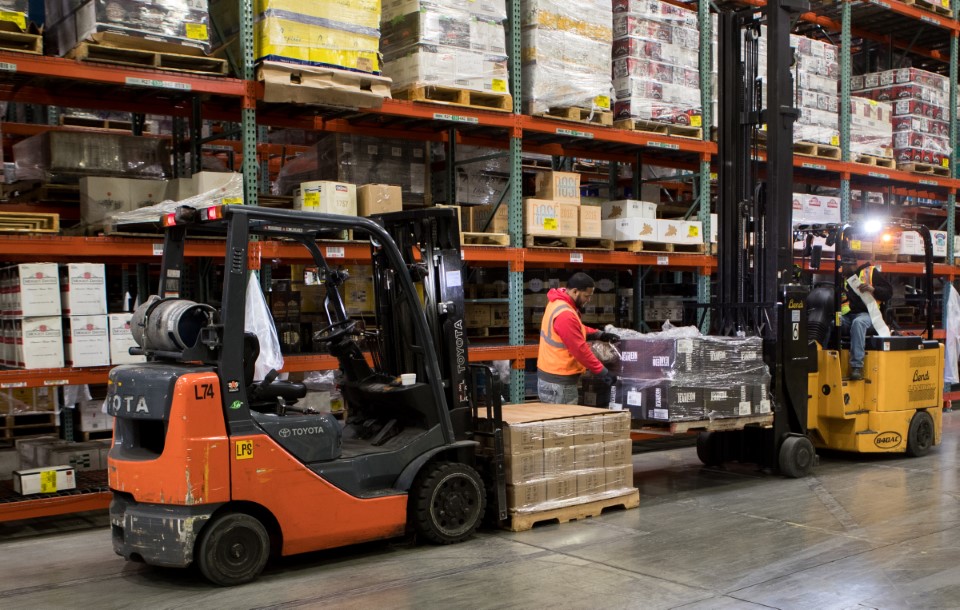After Prohibition was repealed in 1933, the U.S. government created the three-tier system for regulating the production, transportation, and sale of alcohol. As the second tier of this long-standing legal system, distributors (also known as wholesalers) serve as the intermediary between suppliers and retailers. Beverage alcohol distributors are essential to the other two tiers, ensuring that alcohol safely makes the journey from a supplier’s breweries, wineries, and distilleries all the way onto a retailer’s shelves or bar.
Note: There is no federal mandate for the three-tier system, but every U.S. state has adopted some version of it because of its multitude of benefits, including public health, economic stability, and accountability throughout the industry.
How distributors work with suppliers
Distributors work with suppliers — the first tier of the three-tier system — to manage logistics and execute their brand strategies. While suppliers are responsible for producing, bottling, and labeling their products according to federal and state regulations, distributors handle the following:
Warehousing and storage
Transportation and trucking
Supply chain logistics
Brand building and route-to-market planning
Market insights, forecasting, and analytics
Business plans
Trade marketing strategy
“Suppliers work with distributors to get their products to licensed on- and off-premise accounts across the country,” says Louis Zweig, Senior Vice President of Commercial Operations at Southern Glazer’s Wine & Spirits.
Serving as the bridge between suppliers and retailers, distributors are responsible for the safe transportation of products from point A to point B. Suppliers depend on their distributor’s supply chain logistics and truck routing capabilities to make sure their products arrive on time and in ideal condition. Innovations such as climate-controlled storage and EPA SmartWay-certified trucks contribute to efficiency, sustainability, and therefore, success.
“But it’s not just about efficient logistics,” Zweig says. “With a highly trained salesforce, wholesalers play a critical role in securing distribution in the right accounts. Brand building and market expertise are also vital for supplier success, and a distributor with these strengths can help them achieve their long-term goals.”
A good distributor not only meets the requirements above but also takes on many in-market responsibilities. For example, a distributor may help a supplier create promotional programs for their products — particularly in retail environments — and refine their business plans. Targeted marketing programs like fleet advertising or trade and media engagement may be offered by a distributor in collaboration with the supplier to boost brand awareness.
How distributors work with retailers
Retailers (including shops, bars, and restaurants) — the third tier of the three-tier system — depend on distributors for access to a comprehensive portfolio of high-demand products, in addition to:
Scheduled deliveries
Shelving displays (where allowed)
Sales consultants with beverage expertise
Online ordering capabilities
Merchandising (where allowed)
Consumer insights
Menu development
Brand, product, and category training
“Retailers want to work with salespeople who speak their language and offer unique, differentiated products,” Zweig adds. “A successful distributor is highly committed to the three-tier system and their customers, establishing a relationship built on trust.”
On- and off-premise business owners rely on their distributor for timely deliveries and a product selection that matches consumer trends. Features that can help them run a smooth operation, such as flexible delivery schedules, later order cutoff times, and a customer service team that is ready to address issues when their sales representative is not reachable, are often top of mind for retailers.
In addition to well-trained sales consultants who visit in person to assist with merchandising, some distributors offer online shopping platforms for wholesale products, like Southern Glazer’s Proof®. These e-commerce platforms offer retailers the flexibility to order — and restock — everything they need 24/7.
A good distributor’s role doesn’t end there. They will also share their beverage industry expertise by helping retailers stock their shelves, create attractive displays, and curate bar menus and wine lists to highlight featured products.
Regulatory compliance basics for alcohol wholesalers
At their core, alcohol distributors build relationships with both suppliers and retailers to facilitate a seamless process from transportation to sale. They are responsible for complying with federal and state regulations to ensure public health and economic stability. Just like suppliers and retailers, every alcohol distributor in the U.S. must have a license to operate.
Distributors pay a state excise tax on depleted inventory bought domestically and an additional federal excise tax on any items imported from foreign countries. A dependable distributor will require their employees to complete compliance training on an ongoing basis to keep up with any changes taking place at a national, state, or local level.
A distributor with a lasting legacy
As a beverage alcohol distributor with a national presence and a reputation for excellence, Southern Glazer’s Wine & Spirits offers expertise to our local, regional, and national accounts to help them grow. Our data-driven insights and highly trained employees — thousands of whom have earned high-level wine and spirits certifications — differentiate us within this competitive industry. We’re proud of our multigenerational family legacy that traces back to over a century ago.
Interested in joining our dynamic, inclusive team? Explore our open career opportunities and learn more about our company culture today.
Southern Glazer’s was honored to be named Beverage Industry's 2025 Wholesaler of the Year. We are proud to be recognized for our commitment to innovation, exceptional service and employee training, and family-led company structure.
Southern Glazer's
Date Published
August 27, 2025


